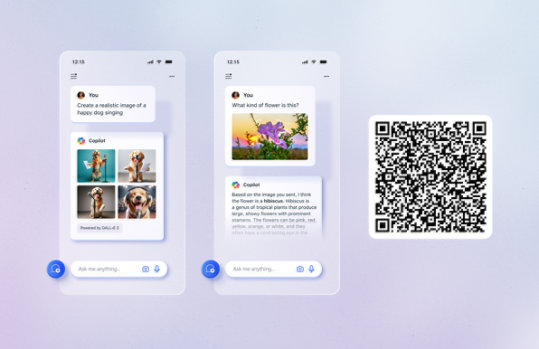Unlock your potential with Microsoft Copilot
Get things done faster and unleash your creativity with the power of AI anywhere you go.

Microsoft Enterprise Library 5.0
Microsoft Enterprise Library is a collection of reusable application blocks designed to assist software developers with common enterprise development challenges. This release includes: Caching Block, Cryptography Block, Data Access Block, Exception Handling Block, Logging Block, Policy Injection Block, Security Block, Validation Block, and Unity.
Important! Selecting a language below will dynamically change the complete page content to that language.
Version:
5.0
Date Published:
3/23/2021
File Name:
Enterprise Library 5.0 - Source Code.msi
Enterprise Library 5.0.msi
File Size:
5.3 MB
11.0 MB
Microsoft Enterprise Library is a collection of reusable application blocks designed to assist software developers with common enterprise development challenges. This release includes: Caching Application Block, Cryptography Application Block, Data Access Application Block, Exception Handling Application Block, Logging Application Block, Policy Injection Application Block, Security Application Block, Validation Application Block, and Unity Application Block.
This major release of Enterprise Library contains many compelling new features and updates that will make developers more productive. These include:- Major architectural refactoring that provides improved testability and maintainability through full support of the dependency injection style of development
- Dependency injection container independence (Unity ships with Enterprise Library, but you can replace it with a container of your choice)
- Programmatic configuration support, including a fluent configuration interface and an XSD schema to enable IntelliSense
- Redesign of the configuration tool to provide:
- A more usable and intuitive look and feel
- Extensibility improvements through meta-data driven configuration visualizations that replace the requirement to write design time code
- A wizard framework that can help to simplify complex configuration tasks
- Data accessors for more intuitive processing of data query results
- Asynchronous data access support
- Honoring validation attributes between Validation Application Block and DataAnnotations
- Integration with Windows Presentation Foundation (WPF) validation mechanisms
- Support for complex configuration scenarios, including additive merge from multiple configuration sources and hierarchical merge
- Optimized cache scavenging
- Better performance when logging
- A reduction of the number of assemblies
- Support for the .NET 4.0 Framework and integration with Microsoft Visual Studio 2010
- Improvements to Unity
Supported Operating Systems
Windows Server 2008, Windows Server 2003 R2 x64 editions, Windows Vista Service Pack 2, Windows Server 2003 R2 (32-Bit x86), Windows Server 2008 R2, Windows 7
Supported architectures: x86 and x64.
Operating system:- Microsoft Windows® 7 Professional, Enterprise or Ultimate
- Windows Vista with Service Pack 2
- Windows Server 2008 R2
- Windows Server 2008 with Service Pack 2
- Windows Server 2003 R2
- Microsoft .NET Framework 3.5 with Service Pack 1
- Microsoft .NET Framework 4.0.
- Microsoft Visual Studio® 2008 Development System with Service Pack 1 (any edition) or Microsoft Visual Studio 2010 Development System (any edition).
- Microsoft Visual Studio 2008 Professional, Visual Studio 2008 Team Edition, Visual Studio 2010 Premium, Visual Studio 2010 Professional, or Visual Studio 2010 Ultimate edition.
- Moq v3.1 assemblies.
- A database server running a database that is supported by a .NET Framework 3.5 with Service Pack 1 or .NET Framework 4.0 data provider. This includes SQL Server® 2000 or later, SQL Server 2005 Compact Edition, and Oracle 9i or later. The database server can also run a database that is supported by the .NET Framework 3.5 with Service Pack 1 or the .NET Framework 4.0 data providers for OLE DB or ODBC.
- Stores to maintain log messages. If you are using the Message Queuing (MSMQ) Trace Listener to store log messages, you need the Microsoft Message Queuing (MSMQ) components installed. If you are using the Database Trace Listener to store log messages, you need access to a database server. If you are using the E-mail Trace Listener to store log messages, you need access to an SMTP server.
- Download the MSI and install.
